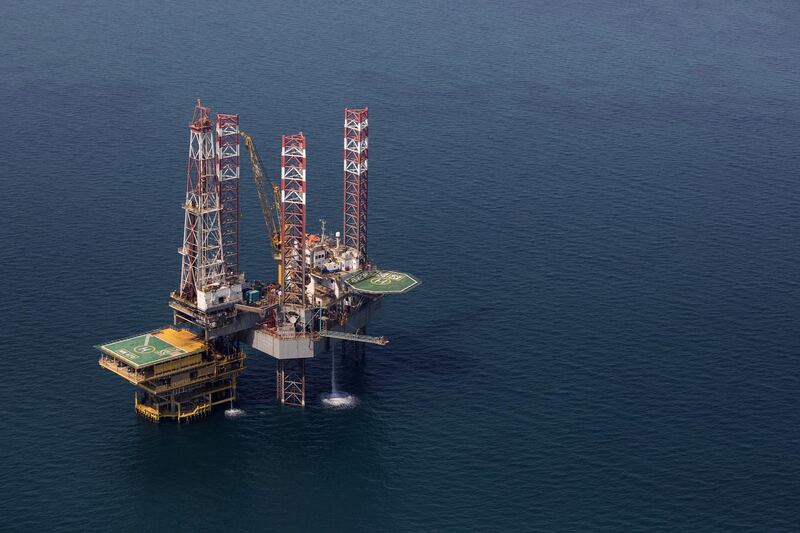An independent audit of Saudi Arabia's hydrocarbon reserves is a positive step for the initial public offering of Saudi Aramco and will pave the way for the state-owned oil producer to sell international bonds to fund mega acquisitions, analysts said.
The world’s biggest oil exporter revised up its hydrocarbon reserves on Wednesday after consultants DeGolyer & MacNaughton finished conducting an audit of the deposits for the end of December 2017. Oil reserves, which include those of Saudi Aramco’s concession, were up 0.8 per cent, while gas reserves increased 5.6 per cent.
"It is significant because it is the first audit by outside sources since Saudi Arabia purchased Aramco," said Ellen R Wald, president of Transversal Consulting and author of Saudi Inc. "This audit confirms that the self reported numbers were correct or even under reported."
The audit is expected to help pave the way for the sale of a 5 per cent stake in Aramco, the world’s biggest oil producing company that is seeking local and international listings by 2021. The flotation was delayed as Aramco continues to prepare for the sale and conducts talks to buy a 70 per cent stake in Saudi Basic Industries Corporation, the Middle East’s biggest petrochemical producer.
“This reinforces reserve estimates and overall should be seen as a sign of further confidence in Aramco’s strength and early preparation for the IPO,” said Mazen Al Sudairi, head of research at Al Rajhi Capital in Riyadh.
Saudi Arabia plans to sell a stake in Aramco as part of its Vision 2030 programme, the kingdom's overarching economic overhaul agenda, which is aimed at weaning the kingdom off oil income.
A public float of the oil major is expected to fetch $100 billion (Dh367bn), making it the world’s biggest-ever IPO and valuing the company at $2 trillion.
Saudi Energy Minister Khalid Al Falih confirmed on Wednesday that the IPO would take place by 2021 as he revealed plans to finance the Sabic acquisition partly through bond sales.
“We believe that having bonds and commercial paper as one of its sources of capital is prudent and necessary,” Mr Al Falih told media on Wednesday evening.
___________
Read more:
[ Saudi Arabia's independent audit of its oil and gas reserves dispels debate ]
[ Trump credits his ‘talent’ for oil price drop ]
[ Oil Watchers See $70 a Barrel in 2019 as Recession Fears Fade ]
___________
Issuing a bond would involve opening Aramco’s books and the audit of its reserves is an exercise that is essential to that process.
“It’s probably part of the necessary housekeeping prior to the expected bond sale, which will be used as part-payment for Sabic,” said James Reeve, chief economist at Samba Financial Group, one of the kingdom’s biggest lenders.
“Bond purchasers require a lot of disclosure, so there will be plenty more information about Aramco’s operations in the prospectus.”
The publication of the independent audit also would likely end the debate about the actual size of Saudi Arabia’s reserves, which has been the subject of speculation by some experts.
“For most of the market, what this does is that it really reinforce what we all know, which is Saudi Arabia holds significant and low-cost reserves,” said Richard Mallinson, an analyst with consultancy Energy Aspects. “People have been sceptical about reserves.”
Saudi Arabia, though, is unlikely to boost its production capacity beyond 12 million barrels of oil per day by developing further its reserves because it requires substantial investments at time of falling oil prices and tapering global demand for crude.
“The current production still experiences natural declines. There is a level of investment just to maintain existing capacity and there needs to be larger investment if Saudi Arabia wanted to raise this capacity,” said Mr Mallinson.
“The fact [that] oil prices remain so volatile makes it less appealing to put all that extra money in to increase capacity when they are not seeing consistent improvement in oil prices from efforts from recent years to stabilise the markets.”






